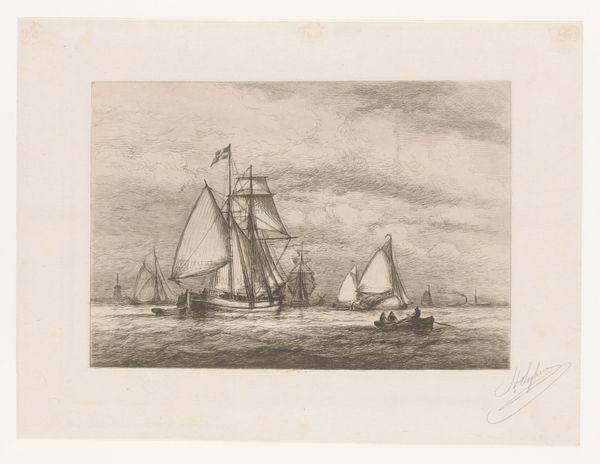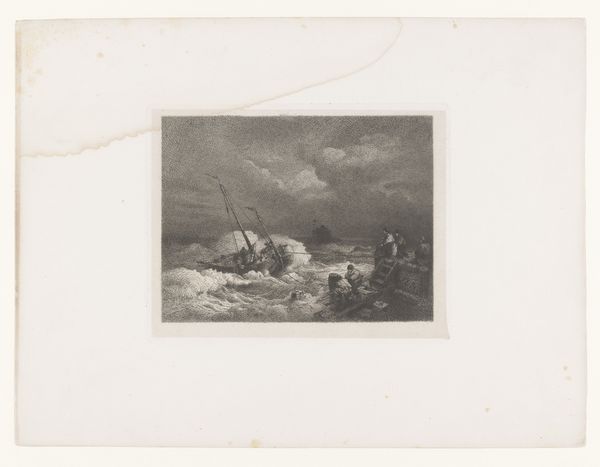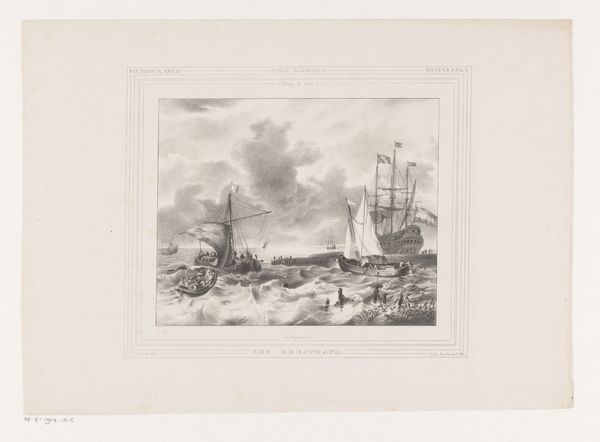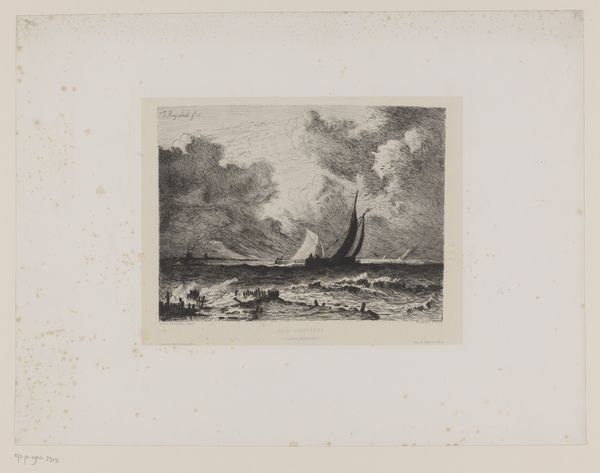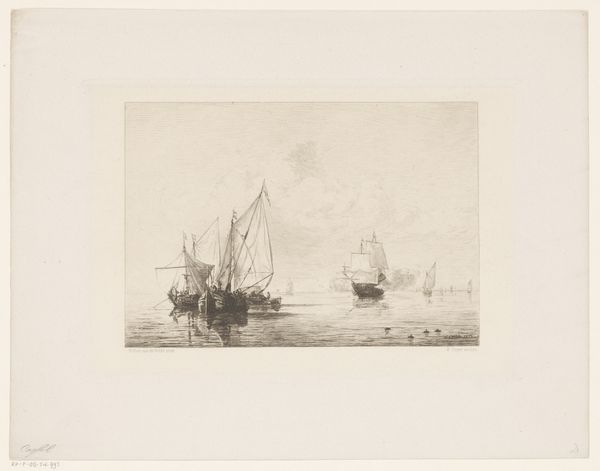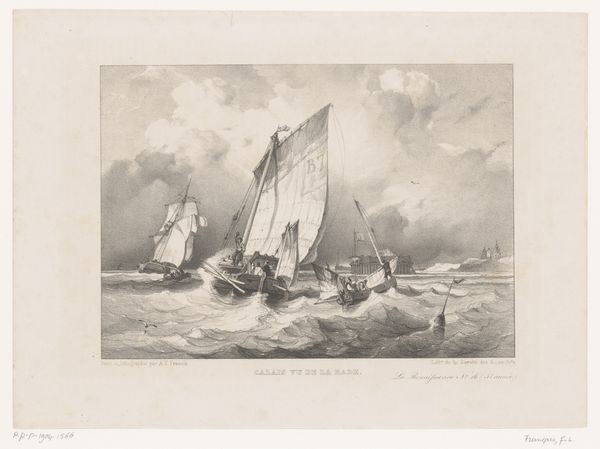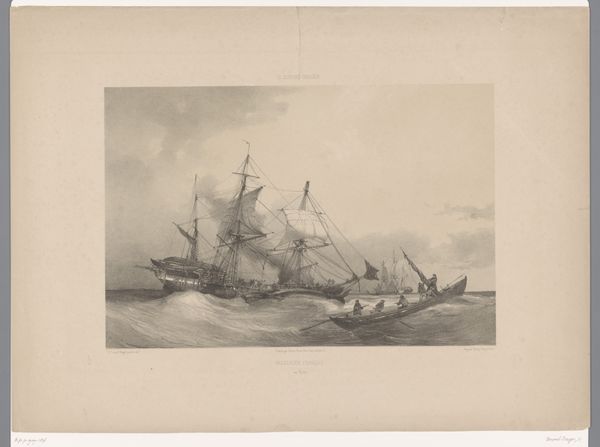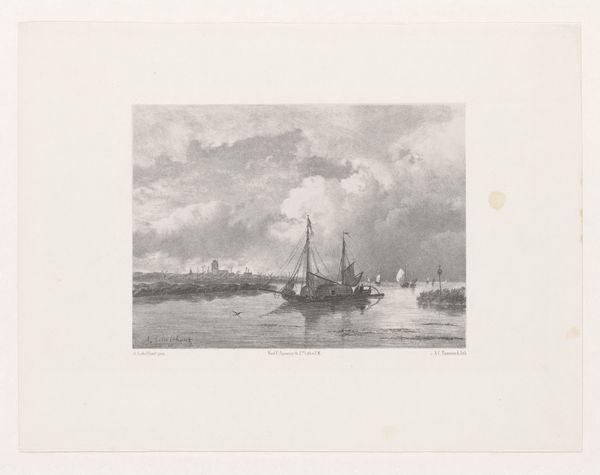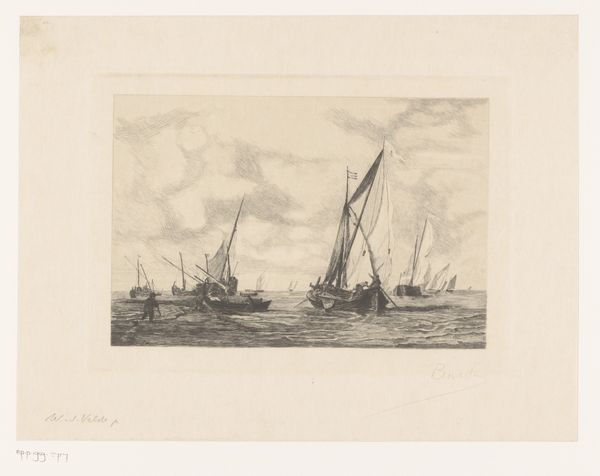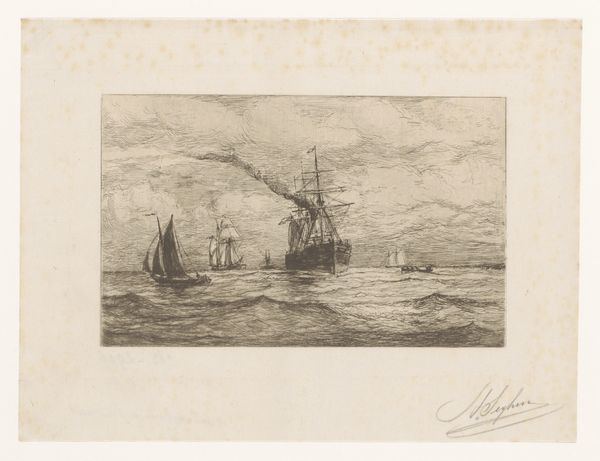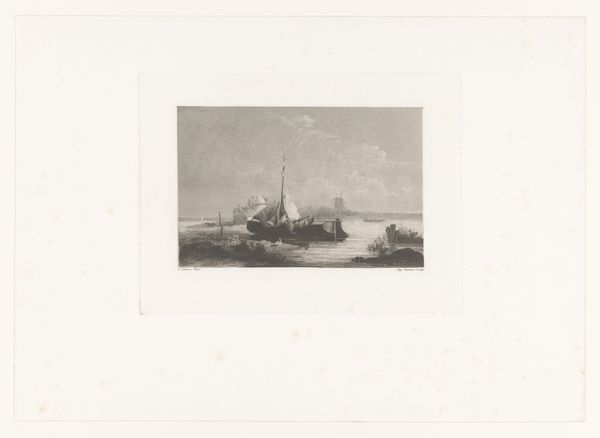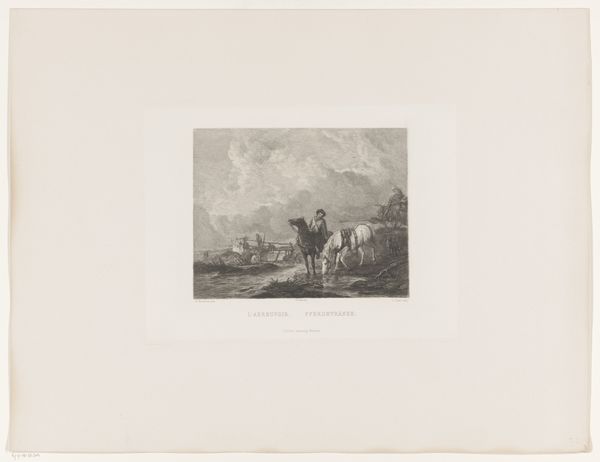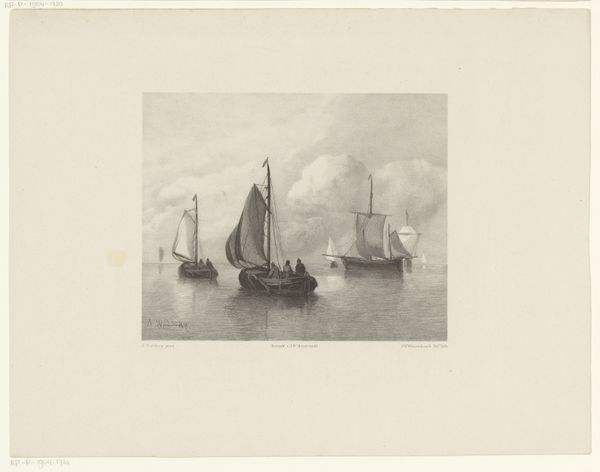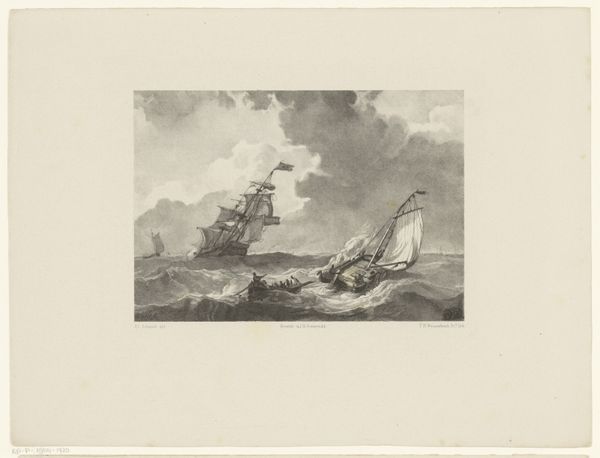
Dimensions: height 265 mm, width 350 mm
Copyright: Rijks Museum: Open Domain
This print, 'Ships and boats at sea', was made in the nineteenth century by Adolf Carel Nunnink. It's rendered in a printing technique called aquatint. The effect is achieved by applying powdered resin to a copper plate, then heating it so the resin adheres. When acid is applied, it bites into the plate around the resin particles, creating a granular surface that holds ink. If you look closely, you’ll see that this aquatint captures a whole range of tones – from the billowing clouds and frothy waves to the sturdy hulls of the ships. The effect is painterly, almost like a watercolor. Yet, the process involves the skilled labor of preparing the plate, applying the aquatint ground, and carefully controlling the etching. Prints like this one democratized access to art. They allowed for the mass production of images, bringing maritime scenes like this to a wider audience beyond wealthy patrons who would buy individual paintings. So, next time you look at a print, remember the labor and technique that went into it, and how it connected art to a broader public.
Comments
No comments
Be the first to comment and join the conversation on the ultimate creative platform.
